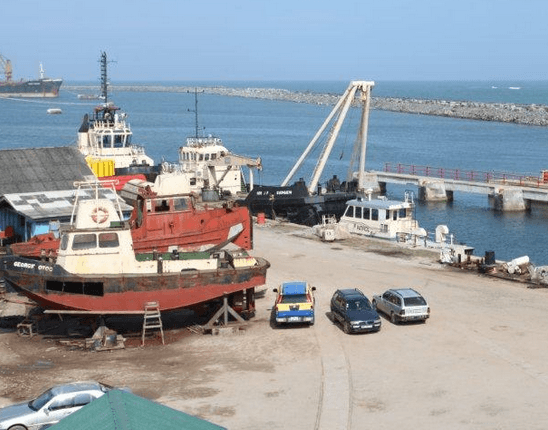Weak law enforcement, bane to fisheries management – Ministry
 The Ministry of Fisheries and Aquaculture Development has identified weak fisheries law enforcement and non-compliance to the fishery laws and regulations as the weakest link in the country’s fisheries management.
The Ministry of Fisheries and Aquaculture Development has identified weak fisheries law enforcement and non-compliance to the fishery laws and regulations as the weakest link in the country’s fisheries management.
Mrs Elizabeth Naa Afoley Quaye, the Sector Minister, expressed these concerns at a Stakeholders Forum on Fisheries Laws Enforcement in Accra on Tuesday.
She said the current exploitation rate of the fisheries resources was not sustainable and urged all stakeholders in the industry to collaborate to stamp out unreported and unregulated fishing practices.
She said the indiscriminate use of explosives, chemicals, under-size fishing nets, light fishing and other aggregating devices for fishing would collapse the fisheries sector if serious and pragmatic measures were not taken to address the menace.
“The continuous use of various chemicals to harvest fish in the artisanal sector has serious health consequences for consumers.
“The practice of using chemicals is seriously wiping out our fishery resources because many of the poisoned fishes that are not harvested eventually rot at the bottom of the sea, thereby polluting the sea…,” she said.
Mrs Quaye said the practice, if not stopped, will lead to the total collapse of the fisheries industry which would have grave consequences on the national economy such as job losses, malnutrition and other negative socio-economic repercussions that would be difficult to quantify.
In the efforts to arrest and reverse the situation, the Minister said the Ministry had developed a comprehensive Fisheries Management Plan to address the challenge.
She mentioned some key measures like the effective enforcement of Fisheries Legislation, improving information on fisheries biology and stock assessment to support the re-building strategy and reducing the current levels of fishing efforts and capacity.
Other measures include protecting marine habitat to conserve biodiversity and product certification and reducing post-harvest losses.
Mrs Quaye advocated the need for fishers to collaborate with the Fisheries Law Enforcement Unit to clamp down on “galamsey in the fishing sector” for sustainable fishery conservation.
“There are more than 300 fishing villages along the entire coastal stretch and on the Volta Lake, there are over 2,000 fishing villages and most of these areas are not accessible by road, therefore, the situation make fisheries enforcement difficult,” she explained.
Against this backdrop, Mrs Quaye said the Ministry and the United States Agency for International Development (USAID) funded Sustainable Fisheries Management Programme sponsored some chief fishermen and fishers to Philippines in 2015 to study the Sea Watch Programme so that they would assist the law enforcement taskforce to enforce the fisheries laws and regulations in the local communities.
She, therefore, condemned the practice where fishermen attacked the fisheries enforcement officers undertaking their legitimate duties and, thus, urged them to co-operate with the fishery security taskforce and volunteers to ensure sustainable fishing practices.
Mrs Quaye said this would safeguard the future generation and welfare of the entire citizenry for accelerated national development.
The meeting brought together major players in the fishing sector including fishermen, fishmongers, chief fishermen, members of Parliament in coastal areas, metropolitan, municipal and district chief executives as well as a cross section of the public who dispassionately deliberated on issues affecting the fishing industry.
They are expected to come out with a communique at the end of the dialogue to serve as a blue-print to halt the illegal fishing practices and sustainable fishery management in the country.
Source: GNA
